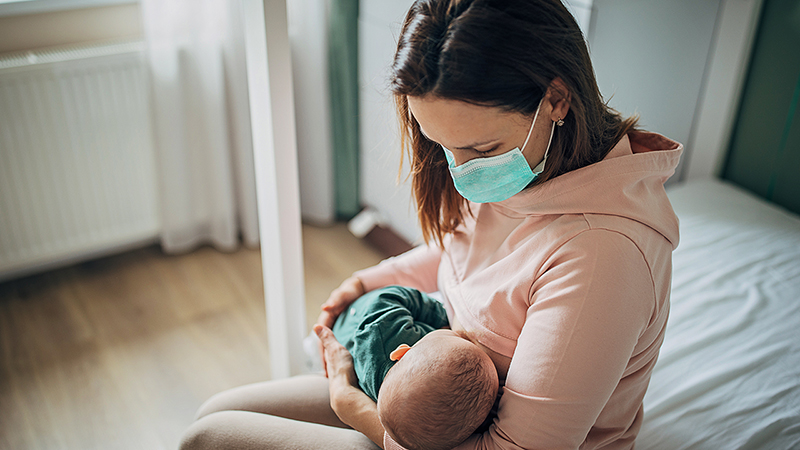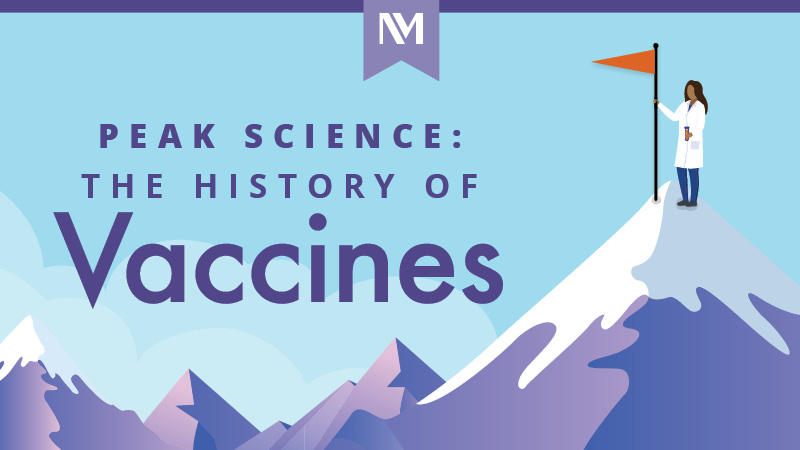Black Physician Addresses Vaccine Hesitancy in Black Communities
Published June 2021
Saving Lives Through Education
Since the beginning of the pandemic, the scientific and medical community has been paying special attention to the disproportionate burden of COVID-19 on certain racial and ethnic groups. For example, in Chicago, non-Hispanic Black people in highly segregated neighborhoods with higher levels of poverty and lower levels of education, income and employment have experienced high death rates from COVID-19.
According to the Centers for Disease Control and Prevention (CDC), another study on COVID-19 deaths in major cities showed that 34% of deaths were among non-Hispanic Black people, though this group makes up only 12% of the U.S. population.
As an African American person and physician, I understand vaccine hesitancy.— Kimbra A. Bell, MD
"Recognizing the racial inequities and how COVID-19 was disproportionately affecting African Americans, I wanted to do something about it," says Northwestern Medicine Internal Medicine Physician Kimbra A. Bell, MD. "I felt the need to educate about how we're being impacted and how we can help reduce the effect of COVID-19 on our communities."
Conversations With Communities
Dr. Bell decided to bring her message into the Chicago communities most affected by COVID-19. Collaborating with local elected officials, she launched a Facebook Live series called COVID-19: Let's Talk. The series successfully engaged people from Black communities who were experiencing a gap in health education about the virus.
In the series, she covered the basics of COVID-19: What the virus is, what it does to the body, how to test for it and how to treat it. In one episode, she partnered with Northwestern Medicine Psychiatrist Crystal T. Clark, MD, to discuss the impact of the COVID19 disparity on the mental health of African Americans. Additionally, Dr. Bell covered treatment options, including remdesivir, steroids and convalescent plasma, and talked about the future at a time when vaccines were still on the horizon.
Addressing Vaccine Hesitancy
When COVID-19 vaccines became available, Dr. Bell knew her knowledge and reputation as a trusted source of information were important tools to help people make informed decisions about getting the COVID-19 vaccine. She also knew that she had to address past injustices for Black people in the United States.
"As an African American person and physician, I understand vaccine hesitancy and the systemic racism and unequal treatment that we as a people have gone through in this country, such as in the Tuskegee experiments," says Dr. Bell. "I wanted to make sure that people knew I understood where they were coming from and validate their concerns, which were based on the experience some of our ancestors suffered in the past. Public health information is often better received when it is delivered by someone who looks like you."
Starting in January 2021, Dr. Bell again turned to public education to get ahead of vaccine hesitancy, working with various civic and faith organizations as well as elected officials to reach even more people. She held a virtual Town Hall, inviting people from the West and South Sides of Chicago to learn about the science and safety behind COVID-19 vaccines.
During the Town Hall, Dr. Bell discussed common concerns about the vaccines. She talked about how the vaccines work and their potential side effects, and addressed several common myths including the myth that vaccines may cause infertility. She discussed the history of vaccines and explained that mRNA technology has been in development for decades. With each topic she tackled, Dr. Bell believes she "peeled back a layer of resistance." She ended the Town Hall with a candid Q&A that left her feeling hopeful.
"After this Town Hall and other community webinars, I had many people to say that they realized many of the rumors they have heard about the vaccine are untrue," says Dr. Bell. "It was very rewarding to hear people say that they were much more comfortable with getting the vaccine after having their concerns addressed."
Conversations With Patients
In her primary care practice, Dr. Bell sees patients with many of the same concerns about the vaccine, and she takes the same approach to addressing their hesitancy.
"I always ask patients what they think about the vaccine and never jump on the defense, or become judgmental," says Dr. Bell. "I listen and ask if I can address some of their concerns. Usually, they leave my office assuring me that they will get the COVID-19 vaccine."







